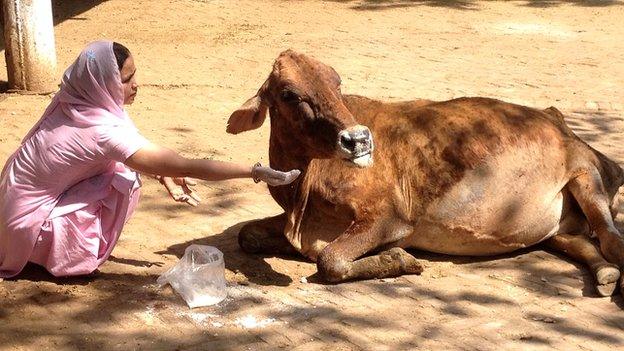India 'beef' lynching: Local groups fanning anti-Muslim violence?
- Published
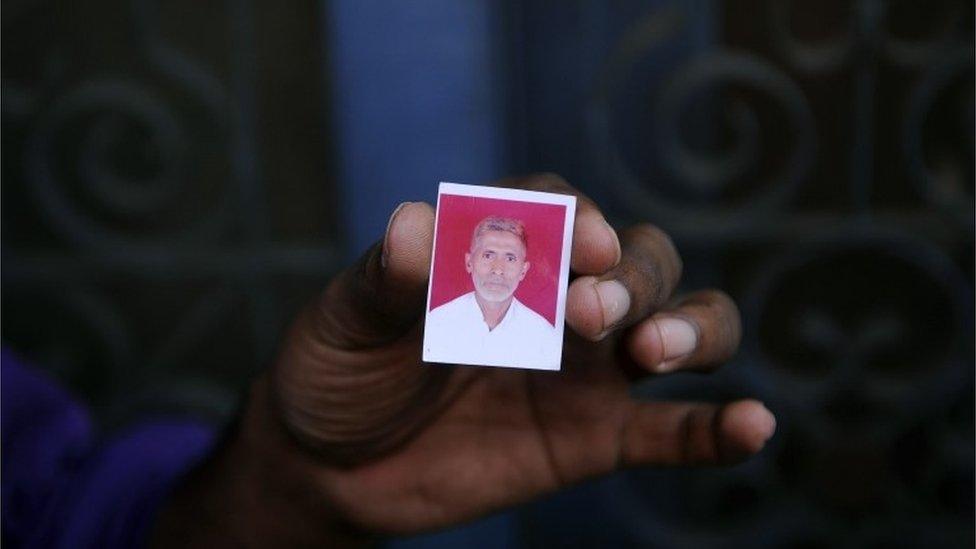
Mohammad Akhlaq was a farm worker
A 50-year-old Muslim man in a village in northern India was killed in a mob lynching on Monday night allegedly over rumours that his family had been storing and consuming beef at home. BBC Hindi's Salman Ravi who went to Dadri in the state of Uttar Pradesh says that two local Hindu groups are being blamed for a rise in religious tensions in the area.
At least two little-known groups - Rashtravadi Pratap Sena and Samadhan Sena - which were set up some six months ago, are being widely blamed for the sudden spurt in incidents of religious tension in the Dadri area, barely 50km (31 miles) away from the Indian capital, Delhi.
"This area had never witnessed communal clashes till six months ago. It is only after these outfits came up that every second day there are reports of clashes between community groups. Even minor incidents of fights between children are taking on a religious hue," says Asmat Khan, the headman of Kalonda, a neighbouring village.
Local Muslims allege that these groups are roping in teenagers and indoctrinating them into their right-wing ideology.
They say meetings, attended by youth in the area, are held in the villages and processions shouting slogans against Muslims are regularly taken out.
Also, they say, a Muslim-owned shop in Jarcha village in Dadri was shut down after protests by these groups. They have also protested against loudspeakers being used in the mosques, local people allege.
'Cow is sacred'
Ahsaan Chaudhary, headman of Jarcha, says his house was also attacked by a group of men last month.
"Armed men barged inside and assaulted my family members. My neighbours confronted the men and forced them to go away. These groups hold meetings and say that the ancestors of Muslims living in the villages were Hindus so they have to convert to Hinduism," says Mr Chaudhary.
The police had arrested Govind Chaudhary, chief of Samadhan Sena, in connection with the attack on Mr Chaudhary's house. He is now out on bail.
Mr Chaudhary told the BBC that the allegations against him were being "planted by the local authorities" since he was "fighting for the rights of the people".
"You ask the Muslim families living in my village and they are with our organisation. We have never asked any Hindu not to allow a Muslim to open his shop. These are all false allegations against me. So far the slaughter of cows is concerned, it is banned by law. Cow is sacred to Hindus and we will not allow this to happen," he said.
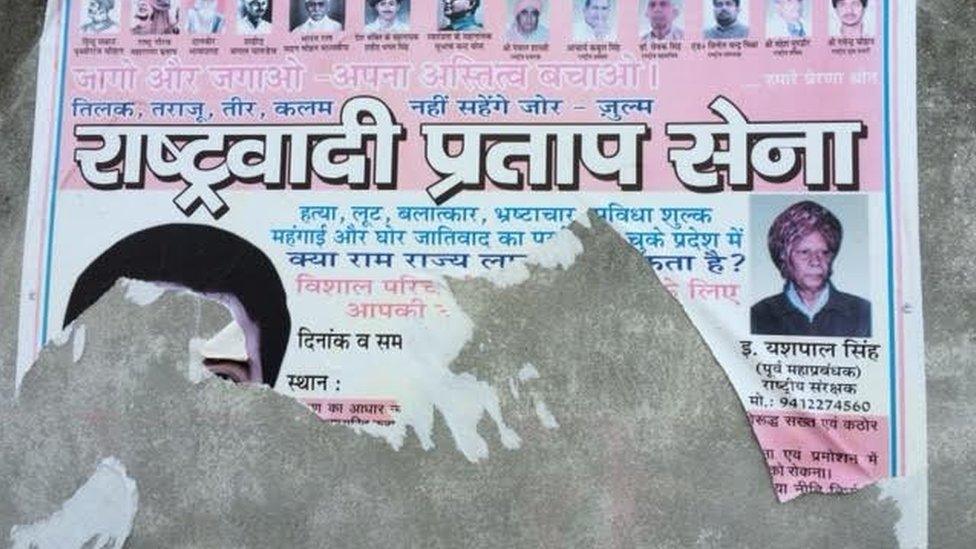
A poster for the Rashtravadi Pratap Sena which reads "stand up to save your identity"
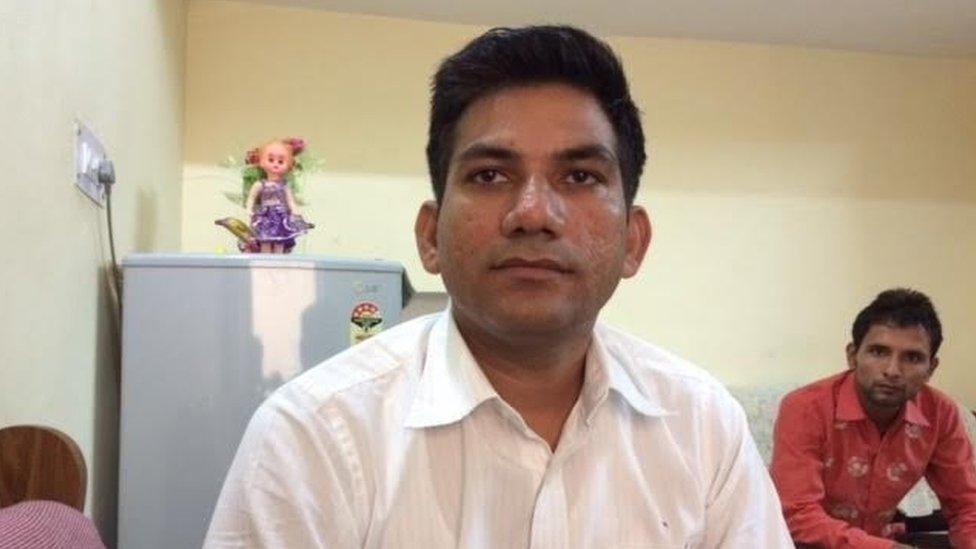
Govind Chaudhary, chief of Samadhan Sena, denies all allegations against his group
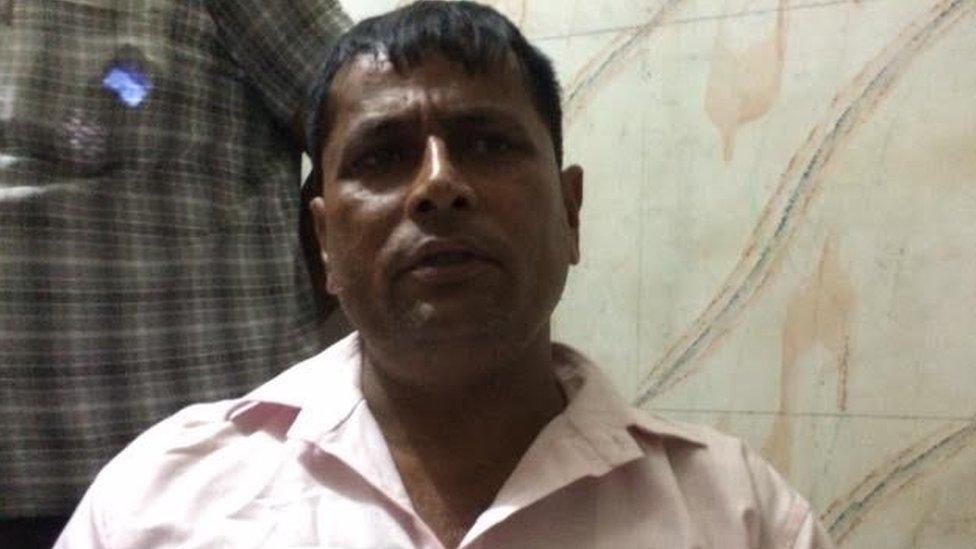
Ahsaan Chaudhary says his house was attacked last month and that Muslims in his village have been asked to convert to Hinduism
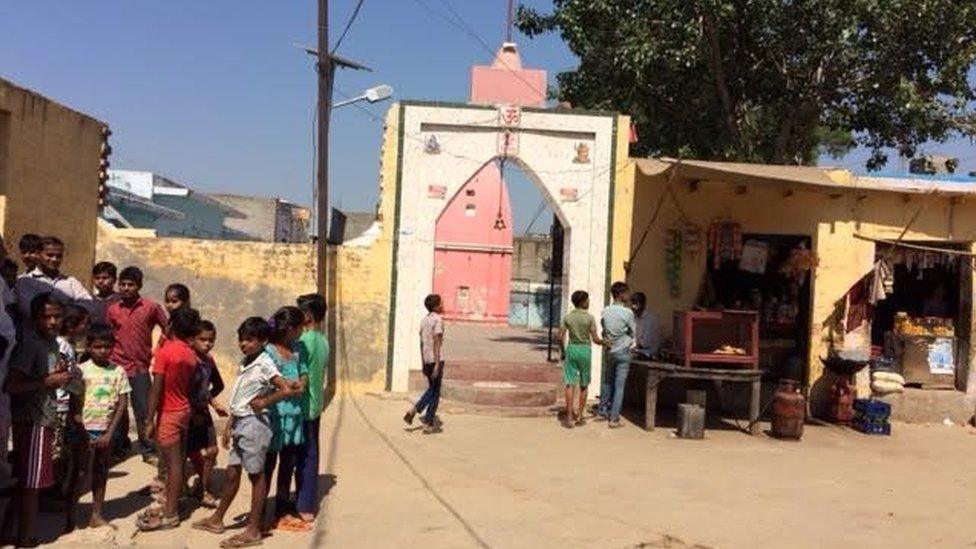
Many say they heard the village temple make an announcement that Mr Akhlaq had consumed beef. The mob gathered soon afterwards
Many Muslims are accusing the other group - Rashtravadi Pratap Sena - of instigating the attack at Bisada village.
Talking to the BBC, Afzal, brother of Mr Akhlaq, alleged that although the attack was carried out at 10.30 pm on Monday, it had started with the members of the group spreading rumours of cow slaughter via WhatsApp messages since six in the evening.
Not only that, the family members alleged, group members had organised a meeting at a local school and were instigating the young Hindu men against Muslims saying that the latter were cow slaughterers.
Slaughter of cows is a sensitive issue in India as the animal is considered sacred by Hindus, who comprise 80% of the country's 1.2bn people.
Uttar Pradesh is among a number of Indian states who have tightened laws banning cow slaughter and the sale and consumption of beef.
"The situation now is such that a Muslim villager can't buy a cow and bring it home. We will be attacked or may even be killed. It is easy to accuse that the cow is being taken to be slaughtered," says Mr Chaudhary.
- Published3 March 2015
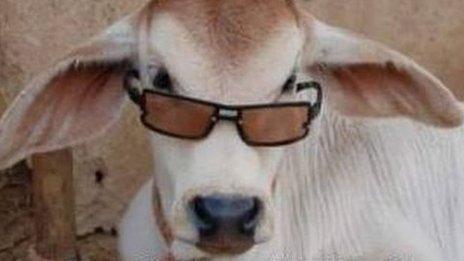
- Published11 February 2015
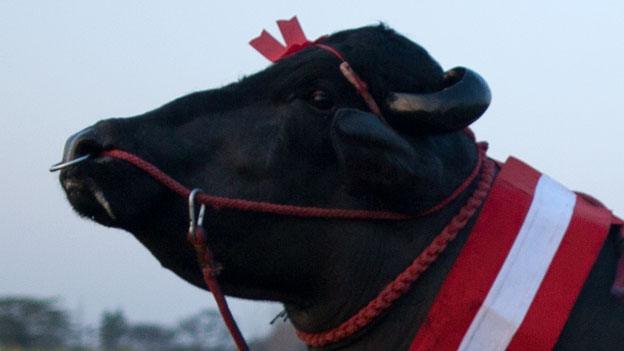
- Published4 May 2014
